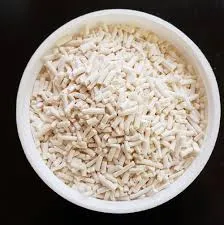
Understanding the Role of Antioxidant Additives in Food Preservation and Health Benefits
Antioxidant Additives in Food Preserving Quality and Health
In recent years, the consumption of antioxidant additives in food has gained significant attention, not only for their role in enhancing the shelf life of food products but also for their potential health benefits. Antioxidants are substances that inhibit oxidation, a chemical reaction that can produce free radicals, leading to cellular damage and various health issues. In the food industry, these additives play a crucial role in preserving food quality, preventing spoilage, and combating the detrimental effects of oxidative stress.
Antioxidant Additives in Food Preserving Quality and Health
Beyond their preservative functions, antioxidant additives also provide significant health benefits. Many antioxidants, such as flavonoids and polyphenols found in fruits and vegetables, are associated with reducing the risk of chronic diseases, including cardiovascular diseases and certain types of cancer. By neutralizing free radicals in the body, dietary antioxidants can help mitigate oxidative stress, which has been linked to inflammation, aging, and various health disorders. This has led to a growing interest in the use of natural antioxidants derived from plant sources as functional food ingredients.
antioxidant additives in food

In the food industry, synthetic antioxidants like BHA (butylated hydroxyanisole) and BHT (butylated hydroxytoluene) are commonly used due to their effectiveness and cost-efficiency. However, there is an ongoing debate about the safety of these compounds, with some studies suggesting potential health risks associated with their long-term consumption. As a result, consumer demand for natural alternatives has surged, prompting food manufacturers to explore plant-based antioxidants. Substances like rosemary extract, green tea extract, and grape seed extract are gaining popularity as natural preservatives that not only enhance food stability but also provide additional health benefits.
The regulatory landscape surrounding antioxidant additives is also evolving. In many countries, regulatory bodies have established guidelines for the use of these substances in food products, emphasizing the importance of safety and efficacy. For instance, the Food and Drug Administration (FDA) in the United States reviews the safety of food additives, including antioxidants, and provides guidelines for their permissible levels in various food categories. This oversight is crucial in ensuring that consumers are protected from potential health risks while benefiting from the positive effects of these additives.
Despite the advantages of using antioxidant additives, it is essential for consumers to be informed about their presence in food products. Labels often indicate the inclusion of preservatives, and consumers should make choices based on their dietary preferences and health goals. Increasing awareness of the importance of antioxidants in the diet encourages individuals to incorporate a variety of fruits, vegetables, nuts, and whole grains into their meals, providing a natural source of these beneficial compounds.
In conclusion, antioxidant additives play a vital role in the food industry, enhancing shelf life and contributing to consumer health. While synthetic antioxidants continue to be widely used, the shift towards natural alternatives reflects a growing awareness of health and safety concerns. As research continues to unveil the health benefits of antioxidants, both producers and consumers alike will increasingly recognize their significance in achieving a balanced and nutritious diet. Consequently, the integration of these additives into food products is likely to remain a key focus in the pursuit of quality and health in the food industry.
-
Nitrile Rubber Honoring Strict Production StandardsNewsAug.22,2025
-
Aspartame Ingredients Honoring Food Safety ValuesNewsAug.22,2025
-
Fertilizer for Balanced Plant NutritionNewsAug.22,2025
-
Cyanide Gold Processing with High Purity AdditivesNewsAug.22,2025
-
Formic Acid in Textile Dyeing ApplicationsNewsAug.22,2025
-
Aluminum Hydroxide Gel in Skincare ProductsNewsAug.22,2025
-
Regulatory Compliance for Global Mining Chemicals UseNewsAug.12,2025
Hebei Tenger Chemical Technology Co., Ltd. focuses on the chemical industry and is committed to the export service of chemical raw materials.
-

view more DiethanolisopropanolamineIn the ever-growing field of chemical solutions, diethanolisopropanolamine (DEIPA) stands out as a versatile and important compound. Due to its unique chemical structure and properties, DEIPA is of interest to various industries including construction, personal care, and agriculture. -

view more TriisopropanolamineTriisopropanolamine (TIPA) alkanol amine substance, is a kind of alcohol amine compound with amino and alcohol hydroxyl, and because of its molecules contains both amino and hydroxyl. -

view more Tetramethyl Thiuram DisulfideTetramethyl thiuram disulfide, also known as TMTD, is a white to light-yellow powder with a distinct sulfur-like odor. It is soluble in organic solvents such as benzene, acetone, and ethyl acetate, making it highly versatile for use in different formulations. TMTD is known for its excellent vulcanization acceleration properties, which makes it a key ingredient in the production of rubber products. Additionally, it acts as an effective fungicide and bactericide, making it valuable in agricultural applications. Its high purity and stability ensure consistent performance, making it a preferred choice for manufacturers across various industries.





